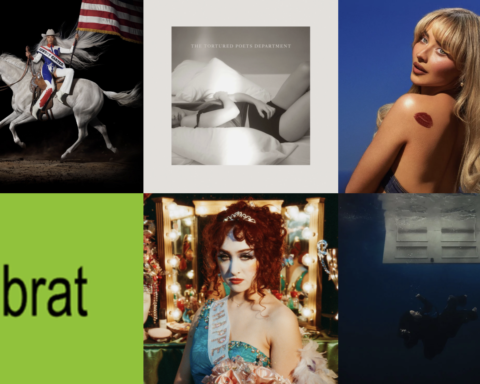By Brandon Fields
Staff Writer
Beyoncé Knowles Carter creates a conversation, and after the release of her second visual album, the conversation is louder than ever before.
Beyoncé and Jay-Z are one of the most famous Hollywood couples, but when it comes to their personal lives, they are reserved in what they allow the public to know. Even after the famed elevator incident that took the Internet by storm, the couple managed to keep quiet and didn’t reveal much about it.
Lemonade, Knowles’ sixth solo album, seeks to break down that barrier. In her most authentic and arguably most vibrant album yet, she uses spoken word, thought-provoking visuals and diverse music to tell the poignant story of a woman’s journey through self-understanding and healing.
With little warning to the public, this musical gem, released April 23 on HBO, surprised everyone. The secretive album was released exclusively on Tidal at first and proved successful on the rising streaming site.
As expected, the album received great commercial success, receiving 200,000 sales within the first day of release and is expected to rise to 600,000 by the end of its first week.
The “Single Ladies” singer began her visual journey in the “intuition” stage, one of the 11 stages throughout the visual album, where she is alone in a field with her afflicted heart and sings angelically “Pray You Catch Me.” Afterwards she explodes, walking through streets destroying everything in her path using her anger, paired with a baseball bat, sporting a Roberto Cavalli mustard-colored dress in her song “Hold up.” With lines like “Can’t you see there’s no other man above you / What a wicked way to treat the girl who loves you,” Beyoncé uses patois, island beats and a pop style of rapping to call out her husband for not appreciating her affection.
She then says screw it, as she stops her self-loathing and begins to take control of her situation in the “anger” and “apathy” stage of the album. In songs like “Don’t Hurt Yourself” and “Sorry,” she uses her voice to throw musical daggers at her adulterer with a line saying, “Who the f**k do you think I am.”
In the song “Sorry,” similar to Beyoncé’s hit “7/11,” she recruits tennis champion Serena Williams to do some dance-hall style dancing. The song, with its catchy cadence and ironic, unapologetic nature, showcases Yonce’s “apathy” in the fourth stage of her album.
She keeps up the powerful vibe up in her song “6 Inch” where she recruits “I Can’t Feel My Face” singer The Weeknd. The song uses both of the artists’s dynamic voices to create an anthem for hardworking women, encouraging them to count their money.
As a surprise, the Houston native chose to tap into her southern roots and make a country ballad called “Daddy Lessons.” In this song, Knowles explains her sixth stage of accountability by saying, “My daddy told me about men like you,” and hints her father did try to warn her, but she didn’t listen.
The latter half of the album is the most authentic. Not only does she make risky musical choices, she taps into sides of herself that give us the same gut-wrenching feelings that she experienced.
This half brings us through “reformation,” “forgiveness,” “resurrection,” “hope” and “redemption,” too.
These stages are the most powerful, and the music embodies that. Knowles teams up with soulful artist James Blake on “Forward” to use his feathery voice in unison with her own church-like vocals to convey her stage of “resurrection.”
Queen Bey partners with “King Kunta” rapper Kendrick Lamar on the track “Freedom” and belts for liberation as he swiftly rips through the beat, calling to stop police brutality on another impactful stand-out song from the album.
Yoncé takes many chances with Lemonade and tries to go beyond the traditional confinements of the genre. She has gone beyond just being a pop or R&B artist. Better yet, her music on this album has become an extension of her.
As intricate and evoking as Lemonade is, it can be summed up in a simple phrase: When life gives you lemons, make lemonade. The simplicity of the elementary proverb to describe the turmoil and heartbreak of being cheated on relates to Beyoncé as a person.
Queen Bey may have money and can get anything she desires but still can’t avoid the pain that comes from the betrayal of a loved one. Beyoncé might seem to have the world, but experiencing her journey from pain to empowerment proves, she is still a person.
fieldsbj14@bonaventure.edu








